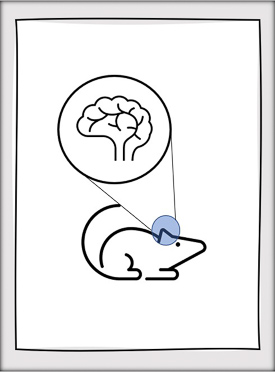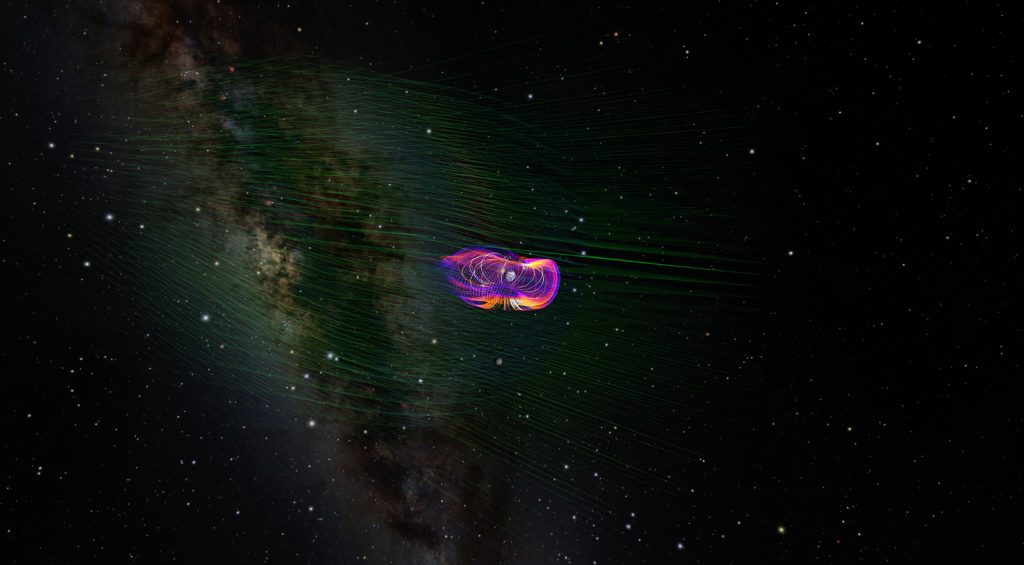Windows on the World — 3rd Floor Nature Exploration Center
Triangle SciTech Expo Presentations- Simplified Schedule
 Photo: Eric Knisley/NCMNS.
Photo: Eric Knisley/NCMNS.
11am — It’s All in Your Head: How Your Brain Chemistry Influences Your Behavior
Candace Swepson, North Carolina Central University

Alcohol is everywhere. It’s in our grocery stores, our restaurants, and even on our TV screens. And while even we find drunken behavior to be entertaining at times, the changes it makes to our nervous system are very real. In this presentation, Candace will discuss the ways in which binge drinking impacts our behavior, specifically our memory, and the changes large amounts of alcohol make to the brain’s memory center, the hippocampus.
Candace Swepson is a first year master’s student in the Biological and Biomedical Sciences Department at North Carolina Central University (NCCU). Candace received a Bachelor’s degree in biology from Catawba College in 2022. She is currently doing graduate research under Dr. Alex Marshall at NCCU where she is investigating the influence of binge alcohol consumption on the release of glutamate, a neurotransmitter, from specific brain cells using a mouse model.
This presentation is recommended for ages 12 and older.
11:30am — Tales of the Intoxicated: Gender Differences and Alcohol Use
Paris Siggers, North Carolina Central University

Alcoholism and chronic heavy drinking can seriously affect how the brain and the rest of the nervous system work. This public talk will emphasize the gender differences and neurological impacts of alcohol misuse.
Paris Siggers is a master’s degree student in the Biological and Biomedical Sciences Department at North Carolina Central University. Siggers obtained her bachelor’s from Alabama A&M University in the spring of 2021. Upon obtaining her master’s, Paris plans to attend medical school to become a pediatrician.
This presentation is recommended for ages 12 and older.
noon — VUI: Virus Under the Influence: How Alcohol Influences Viral Infections
Terrin Farris, North Carolina Central University

Kaposi’s sarcoma is a cancer caused by an understudied Kaposi’s sarcoma herpesvirus (KSHV). Kaposi’s sarcoma herpesvirus lies dormant in the human that is infected. Different factors influence reactivation of the virus, including stress, hormonal changes and habits such as drinking alcohol. In this talk you will hear how alcohol influences cellular growth and viral reactivation.
Terrin Farris is a master’s degree student in the Biological and Biomedical Sciences Department at North Carolina Central University (NCCU). Terrin graduated from Alabama Agricultural and Mechanical University with a bachelor’s degree in human biology in 2021. She is currently doing graduate research in Dr. Lindsey Costantini’s lab at NCCU where she works on how alcohol influences viral reactivation of Kaposi’s sarcoma herpesvirus.
This presentation is recommended for ages 12 and older.
 Earth and its magnetic field, deflecting the solar wind. Image made in OpenSpace. (Credit: Rachel Smith/NCMNS) Click for larger image.
Earth and its magnetic field, deflecting the solar wind. Image made in OpenSpace. (Credit: Rachel Smith/NCMNS) Click for larger image.
2pm — The Dynamic Habitable Zone: Earth, Our Planetary Neighbors, and Worlds Beyond
Dr. Rachel L. Smith, Head, Astronomy & Astrophysics Research Lab Curator, Meteorites, NC Museum of Natural Sciences and Assistant Professor, Appalachian State University, Department of Physics & Astronomy
Earth is currently the only planet in our solar system’s “habitable zone” — the region where liquid water (and therefore life as we know it) can be sustained on a planet’s surface. For this presentation, Dr. Smith will discuss what makes Earth habitable and the “extreme environments” that support life beyond our planet.
We will then journey to our closest planetary neighbors, Mars and Venus, both of which likely used to be habitable worlds, and on to the fascinating moons, Europa and Titan, and consider if they, too, could be harboring alien life. We will then venture beyond our solar system to a few exoplanetary systems with “Earth-like” planets, and a few more “weird and unusual” worlds.
Finally we will consider the existence of ET intelligence, and if life far more advanced than ours might ever connect with Earth and our species. This program will utilize fly-through-the-universe software called OpenSpace that uses real NASA mission data and cutting-edge visualization tools.
Dr. Rachel Smith is Head of the Astronomy and Astrophysics Research Lab and Curator of Meteorites at the North Carolina Museum of Natural Sciences. She is jointly appointed as an Associate Professor in the Department of Physics and Astronomy at Appalachian State University, and Adjunct Professor at UNC Chapel Hill. Rachel’s research involves observing forming stars across the Galaxy to better understand the chemical pathways involved in the evolution of planets, and in the formation of carbon-based molecules needed for life. Rachel has utilized several large observatories for her work, and is currently using NASA’s Infrared Telescope Facility on Maunakea in Hawaii for observations of protoplanetary systems.
This presentation is recommended for ages 8 and older.

